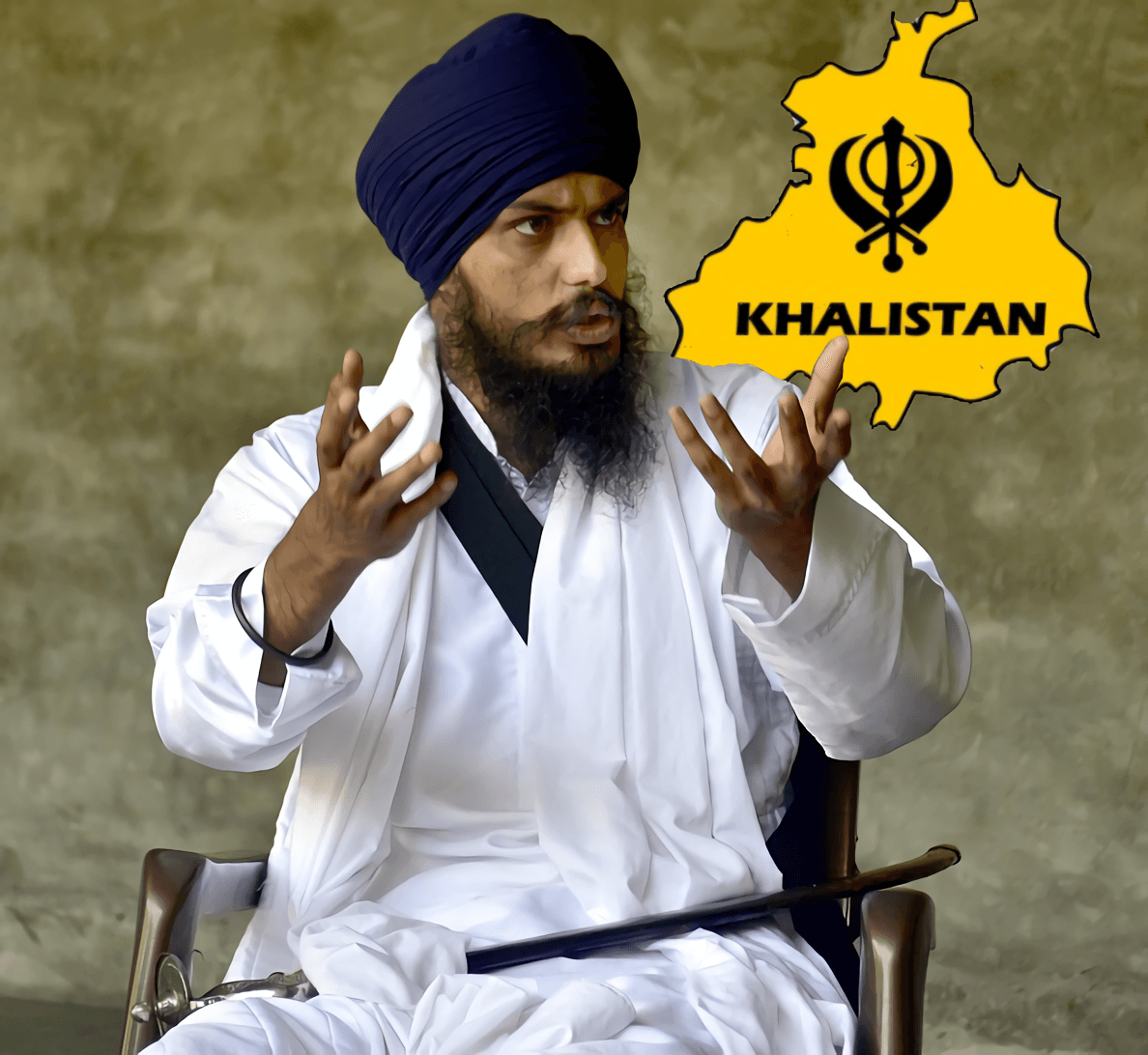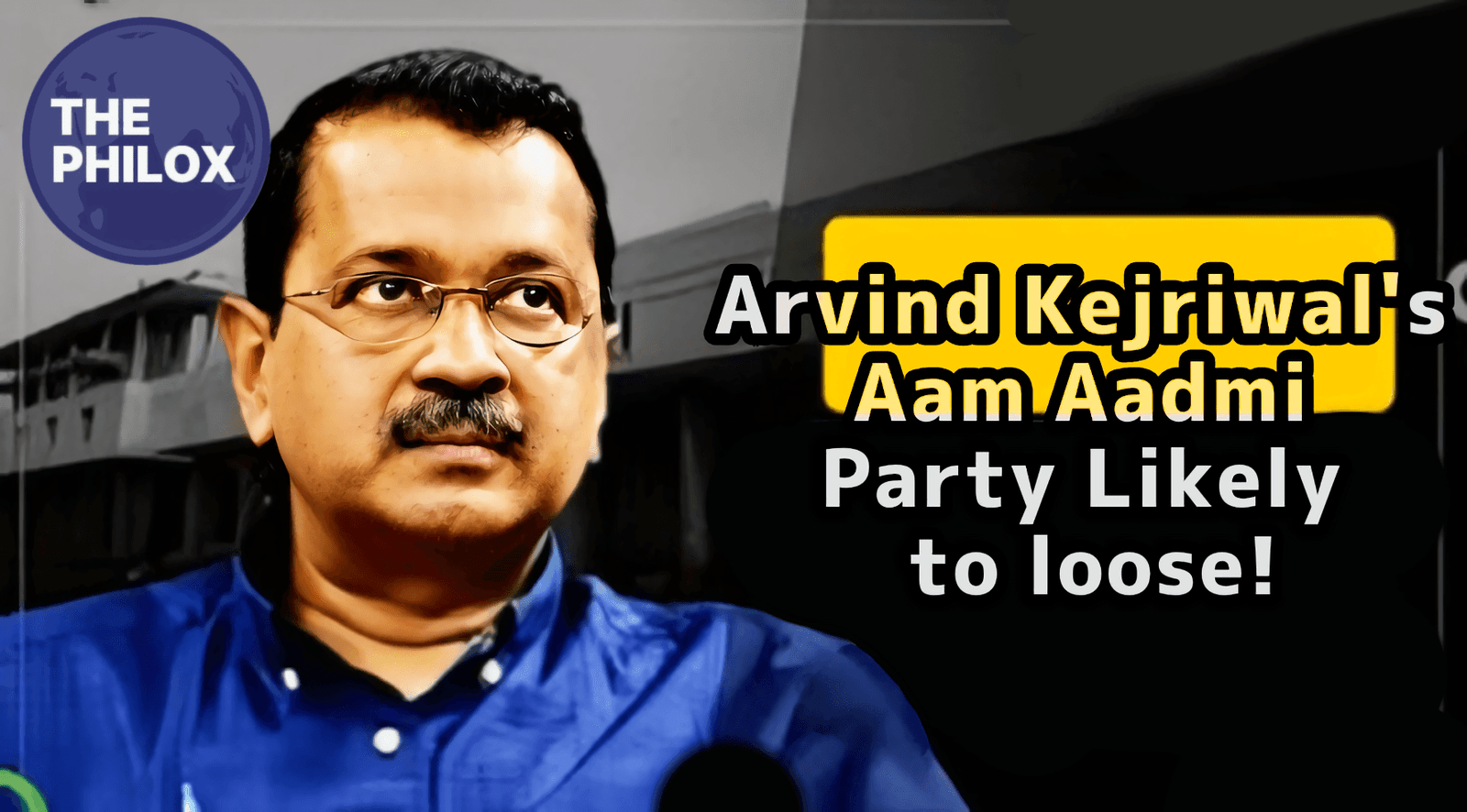Amritpal Singh, a notorious pro-Khalistan leader who is currently in police custody, has announced that he will form a political party on January 14. His claim of forming the separate Sikh nation of Khalistan within one year if his party comes to power in Punjab has attracted much attention to himself.
This article delves into the background of Amritpal Singh and his vision for Khalistan as well as the political and social ramifications of his controversial claim.
Who is Amritpal Singh?
Amritpal Singh is the new face of the pro-Khalistan movement that has emerged in the recent past. A product of Punjab, his life was very ordinary until his radical religious and political views took him into activism.
He rose to prominence as a leader of a group campaigning for Sikh rights and autonomy, inspired by the likes of Jarnail Singh Bhindranwale, who led the Khalistan movement in the 1980s.
His high-octane rhetoric and his mention of the sovereignty of Punjab won him admirers as well as detractors. Supportive ones perceived him as a consolidator of Sikh identity, while ones critical of him perceived him as a practitioner of divisive politics and a trouble agitator.
The Khalistan Movement: A Brief Background
The Khalistan movement is for the establishment of an independent Sikh state in India, primarily in the Indian state of Punjab. The movement gained its steam during the 1970s and 1980s and led to an extreme militancy period.
Military operations by the Indian government took place against these militants, such as Operation Blue Star in 1984, which was undertaken against militants taking shelter in the Golden Temple at Amritsar. These incidents have left their scar on the social and political fabric of Punjab.
The militancy was suppressed in the 1990s; however, the idea of Khalistan continued to exist in the Sikh diaspora and a section of Punjab’s population. It remains a very sensitive topic since it easily incites emotions and strong reactions in its followers and opposers.
Amritpal Singh Vision for Khalistan
Amritpal Singh can be termed as a torchbearer of the Khalistan movement. According to his vision, it is about a state where Sikhs can maintain their religious and cultural identity free from what he sees as systemic oppression by the Indian state.
He suggests that only through self-governance can Punjab’s economic and cultural downfall reverse.
Singh’s claim that he can establish Khalistan within one year if his party comes into power has generated debates. Critics call it an unrealistic promise, while supporters hail it as a bold commitment.
Singh has proposed the organization of referendums, seeking international support, and utilizing Punjab’s rich history of resistance to achieve his goal.
Launching a Political Party
This would be a landmark in his campaign as he would announce to begin a political party. Till now, the name of this Sikh activist-cum-leader had been associated with activism and religious leadership.
now, Singh would be trying to exert his influence over political turf. The new party would enable him to create an actual platform for ideas and gather greater support.
There is the possibility that the 14th of January proposed release date coincides with different religious functions which would indicate how faith and politics are intertwined in his agenda.
Issues that the Singh party may identify itself with – apart from a demand for Khalistan – would be issues of farmer’s rights, economic revival of sorts, and freedom to carry out religious acts.
Challenges in Amritpal Singh’s Political Path Forward
1. Legal Issues: He cannot lead the party and canvass effectively from behind the bars. His followers claim that his arrest is politically motivated, but the Indian government believes him to be a security threat.
2. Public Mood: Khalistan has little resonance among most Punjabis today. Years of violence and instability have left most people skeptical about revisiting the past. Singh has to make the public believe that his vision will usher in prosperity, not turmoil.
3. Governmental Opposition: The Indian government has always been opposed to the Khalistan movement, for it is assumed a threat to national integration. Singh’s political careers would face strong opposition from both state and central governments.
4. Divided Support Base: Though Singh commands excellent support from certain sections, the Sikh community as a whole is divided. Many religious leaders and political personalities have distanced themselves from the Khalistan cause.
Mixed reactions to Singh’s Announcements
Singh’s announcement has presented mixed reactions
1. Political The leaders in Punjab have all come to speak against the language used by Singh, belonging to Congress and AAP. According to them, it is only by focusing on the issue of Khalistan that they divert people from other vital problems like unemployment and drug addiction.
2. Indian Government: The Indian government is highly alert to Singh’s speeches and movement. His arrest is only part of a whole strategy to subdue pro-Khalistanist sentiments.
3. Public Opinion: There are people who have seen Singh as a revolutionary leader, and there are people who suspect him. Social media had been the battlefield where his legitimacy and feasibility of promises were debated.
Does it really have any hope of setting up a Khalistan in one year, as Amritpal Singh claimed recently? Would political, legal, and logistic problems allow that to happen? Some say the very promise would create further polarization in Punjab.
On the other hand, a bold move by Singh can reactivate the debate on regional autonomy and minority rights. He has brought the Khalistan debate into mainstream discourse once again, and forced political parties to address some of the long-standing grievances of Punjab.
The Historical and Political Context
Punjab has its own history closely woven into the Khalistan movement. Scars of the 1980s still drive political attitudes in the state. Singh’s rise is an expression of more widespread alienation among sections of the population from mainstream politics.
On the other hand, unemployment, drug abuse, and stagnation of economic activity weigh on Punjab. Collaboration in governance and development are what Singh’s policies lack clarity about.
It is a decision by Amritpal Singh that opens up a new chapter in his pro-Khalistan campaign. The vision for Khalistan sparked his followers, but it has caused some major concerns for the state as it is still healing from its past. Promises of setting up Khalistan within a year draw people’s attention but also cause skepticism.
As Punjab prepares itself for another election cycle, the party of Singh may have a say in the political dynamics. Whether it brings positive change or further splits the state remains to be seen. For now, Amritpal Singh is a polarizing figure who embodies both the aspirations and controversies of the Khalistan movement.
Stay Connected and Share Your Stories
For all those inspired by stories of resilience and ambition, follow us on X/Twitter at https://x.com/ThePhilox and on Instagram at https://www.instagram.com/philoxbox/. For those with untold stories that you would love to share, please send them to contact@thephilox.com





2 thoughts on “Amritpal Singh Vows to Create Khalistan in One Year if His Party Wins Punjab Elections”